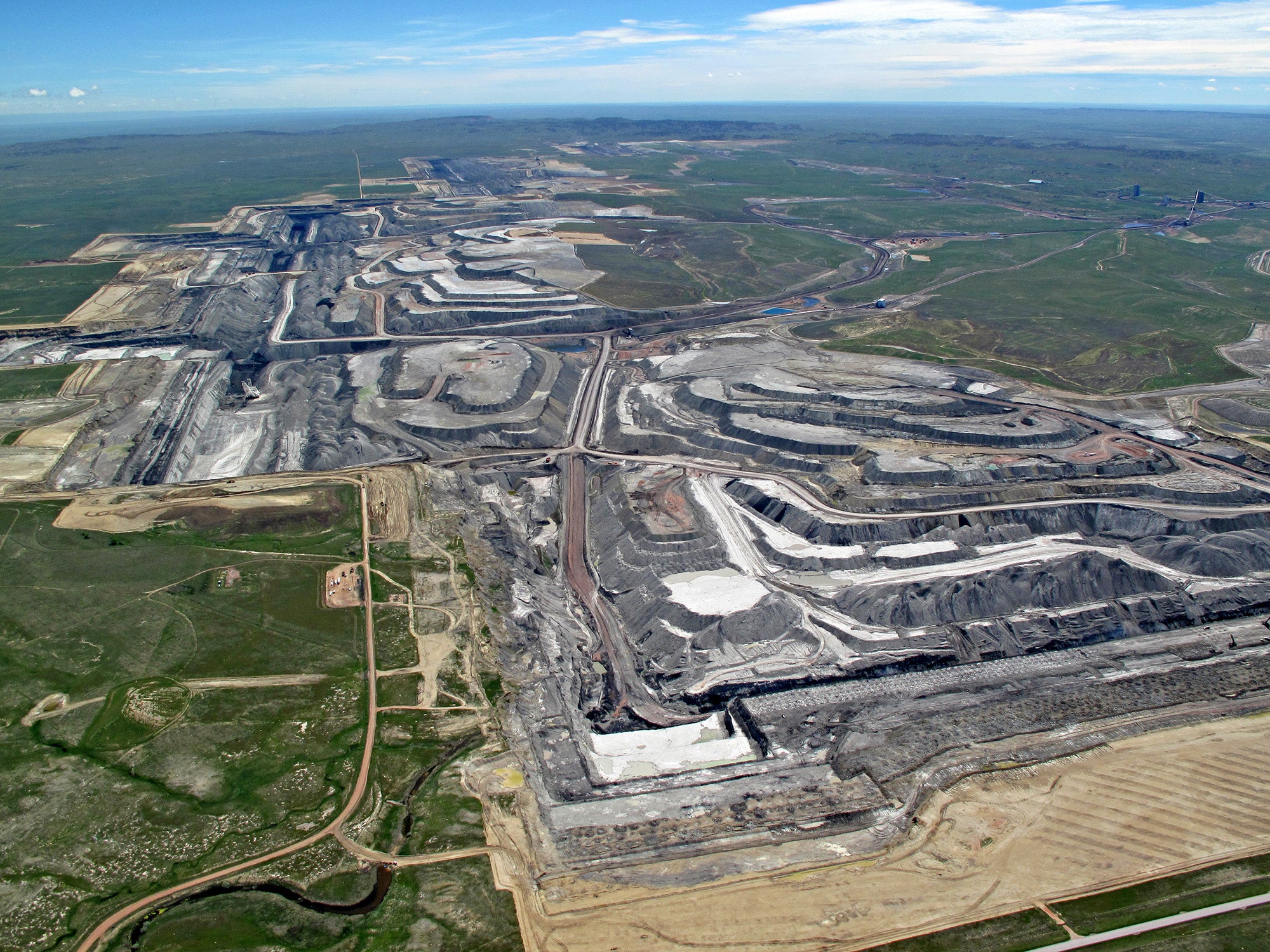It Is Time To End the Era of Coal
Continuing to mine coal from public lands is fundamentally incompatible with the urgent action required to protect communities and combat climate change.
The disastrous consequences of mining and burning coal have never been clearer. Coal mines and power plants destroy vital water resources and poison the air we breathe. Those on the front lines of coal mining and burning, including tribal communities, bear the brunt of these harms. But we’re all affected. Coal burned for energy production continues to be an outsized — and unacceptable — source of climate pollution. While coal now accounts for less than one-quarter of the electricity generated in the United States, it accounts for nearly 60% of CO2 emissions from the energy sector. With historic opportunities to affordably transition to clean energy, this ongoing harm from coal is shameful.
While there is glaring urgency to end destructive coal mining in the United States — particularly on public lands — the federal government continues to drag its feet.
The Bureau of Land Management (BLM) recently announced a public process to gather comments on the scope of a forthcoming environmental impact statement (EIS) examining “the potential environmental effects from maintaining or revoking former Secretary of the Interior Sally Jewell’s coal leasing moratorium.” But BLM is asking the wrong question. The question shouldn’t be whether we maintain or revoke a moratorium on most new coal leasing. Instead, the government should be asking how best to quickly and equitably end federal coal production altogether.
The BLM announcement responds to a Montana federal district court’s August 12, 2022 ruling that the Trump administration’s 2017 decision to end a year-old leasing moratorium had the potential to cause significant harm to the climate, air and water, and communities. Under the court’s ruling, no new coal leasing can occur unless the government first studies these consequences.
When the coal-leasing moratorium was first adopted back in 2016, it was a solid first step toward reforming a broken federal coal program. But now, in 2023, there is an urgent need for the government to go much further to protect communities, the environment, and the climate.
In the seven plus years since then-Interior Secretary Sally Jewell first paused coal leasing, the climate imperative to end federal coal production has only become clearer. A recent Tyndall Center study analyzing phase out pathways for fossil fuel extraction globally concluded that, to preserve a 50–67% chance of limiting temperature rise to 1.5°C, developed countries like the United States must immediately begin phasing out coal production, and end production entirely by 2030. And the latest report of the Intergovernmental Panel on Climate Change (IPCC) starkly describes the consequences of indecision or inaction: “Every increment of global warming will intensify multiple and concurrent hazards,” and bring us closer to “tipping points,” which carry “abrupt and/or irreversible changes in the climate system.”
But the IPCC also offers hope. “Deep, rapid, and sustained reductions in greenhouse gas emissions” would slow and limit the worst climate impacts. These reductions necessarily must include eliminating greenhouse gases from federal coal production. It is no longer enough to simply reinstate the 2016 moratorium on most new coal leases. To avoid the worst impacts from climate change, BLM must close loopholes that allow modifications and expansions of existing leases, lease renewals that lock in a decade of mining at criminally low royalty rates, and royalty rate reductions that prop up marginal mines that would otherwise be closed and remediated.
As BLM takes needed steps to end federal coal production, it must simultaneously ensure timely cleanup of coal pollution and provide local jobs and economic diversification for impacted communities. As Northern Cheyenne Tribal Administrator William Walksalong has explained, “Not only would this protect our ancestral lands, our air, and our water, it could launch meaningful employment opportunities for our people.” The Inflation Reduction Act unlocked significant federal investments to assist so-called “energy communities” with the transition away from fossil fuel economies. The administration must now partner with communities to ensure these investments are realized in ways that provide durable benefits to impacted individuals, families, and communities.
Continuing to mine coal from public lands is fundamentally incompatible with the urgent action required to protect communities and combat climate change. BLM’s environmental review of the coal leasing moratorium must also consider broad measures to equitably end federal coal production and take immediate action to avoid further harm from this dirty industry.
As the managing attorney of the Northern Rockies regional office in Bozeman, Montana, Jenny leads advocacy to protect the region’s wild landscapes and wildlife, prevent and remedy the harmful impacts of fossil fuel development, and promote a transition to clean renewable energy.
Established in 1993, Earthjustice's Northern Rockies Office, located in Bozeman, Mont., protects the region's irreplaceable natural resources by safeguarding sensitive wildlife species and their habitats and challenging harmful coal and industrial gas developments.
